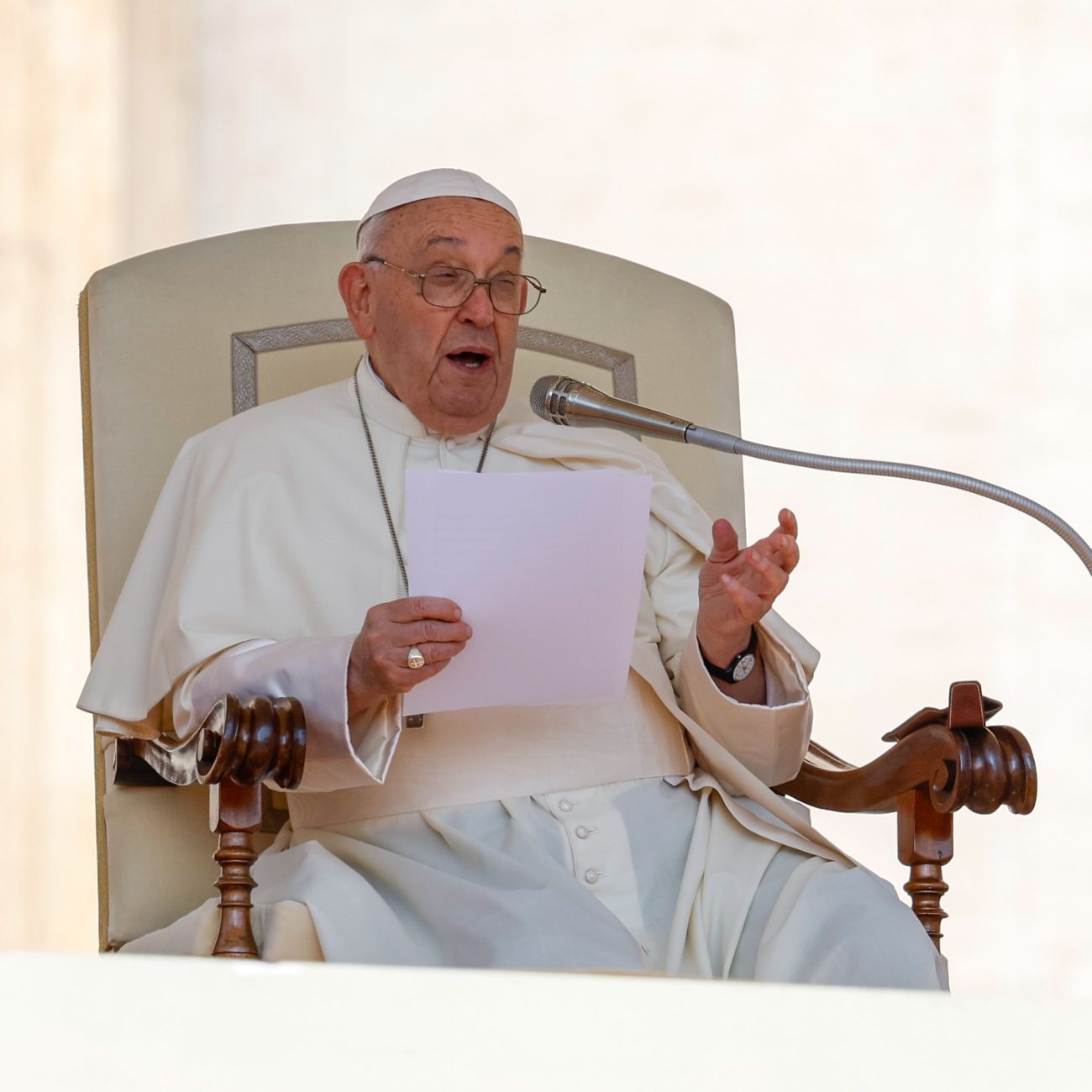VATICAN CITY (CNS) — As immigration becomes an increasingly hot-button political issue in the United States and Europe, Pope Francis again underscored the moral weight of how migrants are treated, hammering home a message of acceptance that has been a pillar of his pontificate for more than a decade.
Soon after his election in 2013, Pope Francis made it clear that immigration was an issue of the utmost importance both to him personally and to the entire church by choosing the island of Lampedusa, Italy, a landing point for migrants entering Europe, as the destination for his first trip outside of the Vatican.
Since then, he has prayed for and met with migrants repeatedly to shine a spotlight on the often-overlooked plight of people who leave their homelands in search of safety and a more dignified life.
And the flow of migrants worldwide grows each year.
In Europe, the number of migrants rose from around 20 million in 1990 to over 40 million in 2020, and in the North America from over 20 million in 1990 to over 50 million in 2020, according to data from the International Organization for Migration.
Clearly the increase is on the minds of voters and lawmakers alike. According to a Pew Research Poll, since 2021 “the share of Americans citing immigration as a top priority has increased 18 percentage points — from 39% to 57% — with the change coming almost entirely among Republicans and Republican-leaning independents.”
In an article in February, Pew said 76% of Republicans cited immigration as a top policy concern in 2024.
In line with this trend, the pope appears intent on making his case for the moral imperative to welcome migrants even more pronounced.
During his weekly general audience Aug. 28, unprompted by any specific event, Pope Francis deviated from his usual catechesis series to discuss the plight of migrants.
In terms of timing, his teaching came two months after European parliamentary elections which saw significant gains for parties in Italy, France and Germany touting hardline immigration policies, and some two months out from the U.S. presidential election in which immigration is a major policy touchpoint.
Instead of offering a theological reflection, the pope sternly criticized those who obstruct migrants from finding peace and security in a new country.
“It needs to be said clearly: There are those who systematically work by all means to drive away migrants, and this, when done knowingly and deliberately, is a grave sin,” he said during his general audience Aug. 28.
While the pope did not say “mortal sin,” his statement mirrors the description of a mortal sin provided in the catechism: “sin whose object is grave matter and which is also committed with full knowledge and deliberate consent.”
Pope Francis continued by criticizing “more restrictive laws” around migration and the “militarization of borders” as ineffective methods of reducing global migration flows, instead calling for “safe and legal access routes for migrants” and a “global governance of migration based on justice, fraternity, persecution and solidarity.”
Although always insisting migrants and refugees be treated with dignity, the pope’s latest message appears to be an escalation.
He ruffled feathers in 2015 when he said that a person who thinks only of building walls and not of building bridges is “not Christian,” in response to a reporter’s question on Donald Trump’s candidacy for the presidency. During a 2019 flight to Panama, Pope Francis told a reporter that the fear of migrants “makes us crazy,” and in a May 2024 interview with 60 Minutes, he called efforts by the state of Texas to shut down a Catholic charity working to support migrants “madness.”
Yet the pope has rarely been so critical of anti-immigration practices in prepared speeches, instead frequently opting to condemn the larger “throwaway culture” of modern society which breeds “defensiveness and fear, indifference and marginalization” toward migrants and refugees, as he said in a 2017 forum on migration.
During his trip to the United States in 2015, for example, he told a joint session of Congress to “not be taken aback” by the number of refugees traveling north in search of greater opportunities, but to “view them as persons” and “respond in a way which is always humane, just and fraternal.”
The pope has, however, invoked the concept of sin in previous speeches. During Mass for the World Day of Migrants and Refugees in 2018, he said it was sinful to allow fear of foreigners to “compromise respect and generosity, and to fuel hostility and rejection.”
Still, the bite behind his latest remarks made headlines in a way that his routine messages and homilies on migration, filled with appeals to see Christ in the face of migrants, have not.
The media attention may be attributable to the intensifying global debate on immigration or the fierceness of his recent remarks. But for Vatican-watchers, Pope Francis’ pointed statement – especially his use of the phrase, “grave sin” – and his condemnation of certain policies prompt a critical question as he enters what some are considering the “legacy” phase of his pontificate: Is his most forceful language on migration yet to come?
PREVIOUS: Pope: Driving Away Migrants is a ‘Grave Sin’
NEXT: Pope Sets Off on Longest Trip of His Pontificate




Share this story